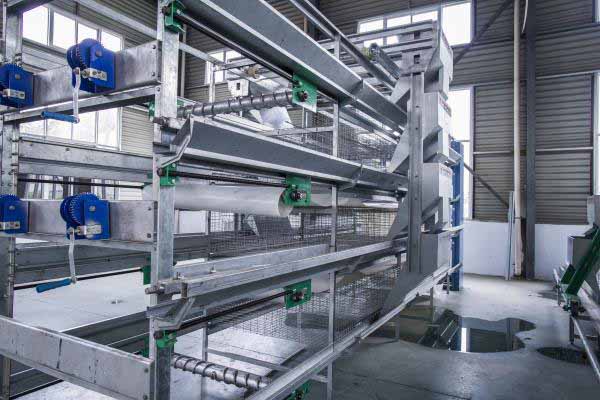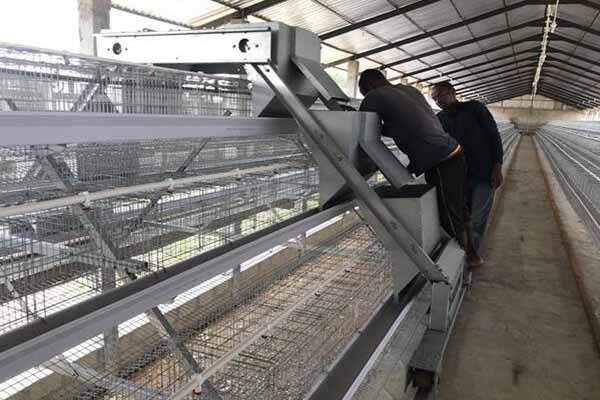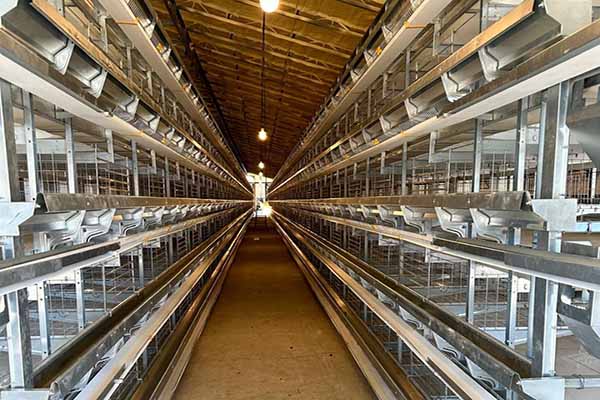Technical Support for Automated Equipment in Kenya Chicken Farms
Time : 2025-06-30
In recent years, Kenya’s poultry industry has witnessed significant growth, primarily driven by increased consumer demand for poultry products and the government’s commitment to improving food security. To meet this demand, chicken farms across the country are increasingly adopting automated equipment to enhance efficiency and productivity. However, ensuring smooth operation and maintenance of this advanced technology is crucial for the success of any poultry farming venture. This article discusses the importance of technical support for automated equipment in Kenya chicken farms and provides insights into how farmers can leverage this support to maximize their investment.
The Rise of Automated Equipment in Chicken Farms
The poultry industry has become more competitive, necessitating the use of automated equipment to increase efficiency and reduce manual labor. These advanced systems can monitor animal health, manage feeding, water, and ventilation, and ensure optimal environmental conditions. In Kenya, several factors have contributed to the adoption of such technology:
- Economic Growth: Kenya’s economic growth has provided farmers with access to more investment opportunities, including purchasing and maintaining automated equipment.
- Government Support: The Kenyan government has recognized the importance of the poultry industry and is implementing policies to support the adoption of advanced technologies.
- Market Demand: Increased demand for poultry products has created a need for efficient production methods to meet consumer expectations.
The Role of Technical Support
Despite the numerous benefits of automated equipment, their successful implementation and operation depend on adequate technical support. This support plays a critical role in the following areas:
Installation and Set-Up
Correct installation and set-up of automated equipment are essential for optimal performance. Technical support ensures that the systems are installed according to manufacturer specifications, minimizing the risk of malfunctions and premature wear and tear. Moreover, a proper set-up guarantees that the equipment meets the farm’s specific requirements and works harmoniously with other systems.

Maintenance and Repair
Regular maintenance and timely repairs are crucial to the longevity and efficiency of automated systems. Technical support providers can help farmers develop maintenance schedules, ensuring that critical components are inspected, cleaned, and replaced as needed. In case of breakdowns, trained technicians can diagnose the issue and perform necessary repairs, minimizing downtime and ensuring that production continues smoothly.
Training and Operation
One of the main challenges in adopting automated equipment is training farm staff to operate the systems effectively. Technical support providers can offer comprehensive training sessions, equipping employees with the knowledge and skills required to maintain and operate the technology. This ensures that the systems are utilized to their full potential, reducing waste and increasing productivity.
Software Updates and Upgrades
Automated systems often rely on software to manage and control their operations. Regular updates and upgrades are necessary to keep the technology up-to-date and functional. Technical support ensures that farmers have access to the latest software versions, addressing security vulnerabilities and improving overall performance.
Challenges and Solutions in Kenya Chicken Farms
While technical support is essential, several challenges can hinder its effectiveness in Kenya chicken farms:
Limited Technical Expertise
Kenya’s poultry industry is relatively young, and there may be a lack of experienced technical experts capable of providing specialized support. To address this, farmers can:
- Collaborate with Manufacturers: Partner with reputable manufacturers that offer comprehensive technical support and training.
- Invest in Training: Allocate resources for staff training and development to build in-house expertise.
High Costs
Obtaining technical support can be expensive, particularly for small-scale farmers. To manage costs, farmers can:

- Perform Basic Maintenance: Train staff to perform routine maintenance tasks, reducing the need for professional assistance.
- Preventive Measures: Invest in regular maintenance to prevent costly breakdowns and repairs.
Conclusion
Technical support for automated equipment is vital for the success of Kenya’s chicken farms. By understanding the importance of this support and addressing associated challenges, farmers can maximize their investment in advanced technology, resulting in increased productivity and profitability. As the poultry industry continues to grow, leveraging technical support will become even more critical for ensuring the sector’s long-term success.












